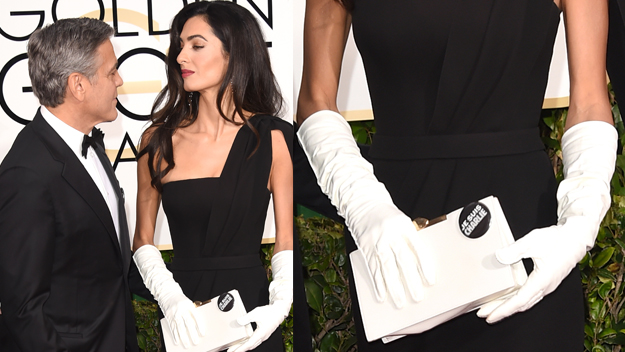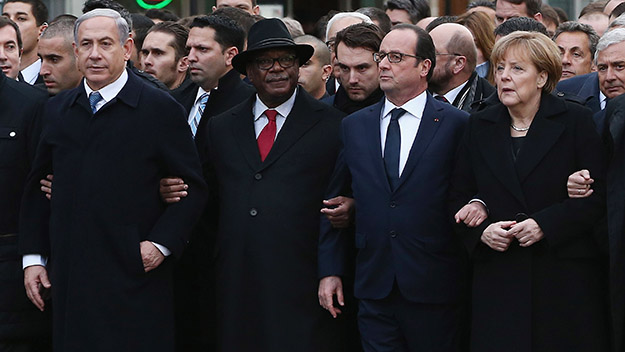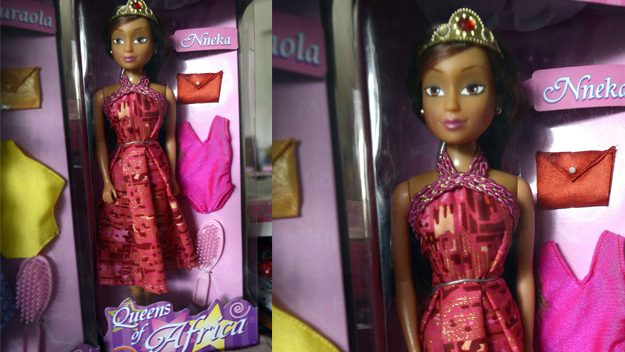Like the time Vogue covered models in oil to commemorate the oil spill off Mexico, or that Holocaust fashion editorial, or all of the times that Urban Outfitters appropriated Native American culture (enough with the feathered headpieces already).
Now, what are we to make of fact that the Charlie Hedbo tragedy in Paris, in which 12 people were killed in the offices of the satirical magazine by extremists, has inspired a range of fetching fashion accessories bearing the slogan Je Suis Charlie?
The slogan became a viral message after the tragedy from supporters of free speech around the world, both on and offline. It picked up speed when the brilliant human rights barrister Amal Clooney (who married that George Clooney guy) wore a Je suis Charlie button on her clutch purse along with her black Dior dress and the white gloves that attracted almost as much attention as her political statement.
While the slogan has become contentious with some condemning the provocative magazine’s treatment of religions (without ever justifying the deaths of 12 people), it sure is moving some stock.
The New York Times reports that Etsy shops have started selling Je Suis Charlie items (seven pages of product ranging from bracelets to necklaces), Amazon are stocking a brand called Spreadshirt that has a variety of t-shirts and novelty items and French Elle magazine scrawled Je Suis Charlie on their cover.
As you might expect, the reactions have been fairly, well, mixed. Especially on social media with detractors tweeting their opinions on the matter. For example:
I read about the “Je suis Charlie” products available for sale. The human greed is infinite. pic.twitter.com/a6UENQU58C
However some creators of the products have responded by saying that they are not trying to profiteer or create a name for themselves out of the tragedy – they were merely expressing their solidarity.
And while there remains a thin film of distaste over the whole thing, when you think about it, who’s to blame – the creators of the product, or the fact that we live in a world that has facilitated the need for them?
Social media has enabled, even demanded, that we express our opinions on, or our solidarity with, a cause. With one click of a button we can ‘like’ a cause or do an important re-tweet that aligns us to an on-point and on-trend opinion, without having to do anything real about it. One click and we’re done.
Is that any better than someone making a t-shirt? They’re filling a demand that we have created – a kind of empty message one. Solidarity is both important and humane, but what happens next?
While it’s easy to condemn grubby and gratuituis behaviour, as Vanessa Friedman points out in The New York Times, perhaps we need to in turn think about our own grubbiness.
“It’s easy to blame the maker for our own discomfort with the retail-ization of cause, that is an evasion of responsibility — on everyone’s part. The consumers who demand the products and buy them drive this particular e-tail niche.”
As Friedman says, fashion reflects the world – not always in the best and most PC way – but maybe it’s what we deserve. It’s a supply and demand thing, really.
And perhaps it’s time to think about what we’re really demanding.


